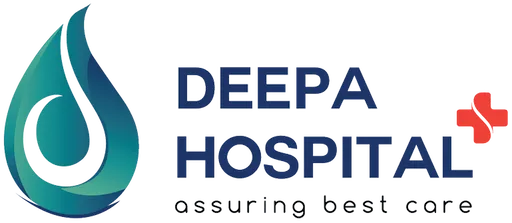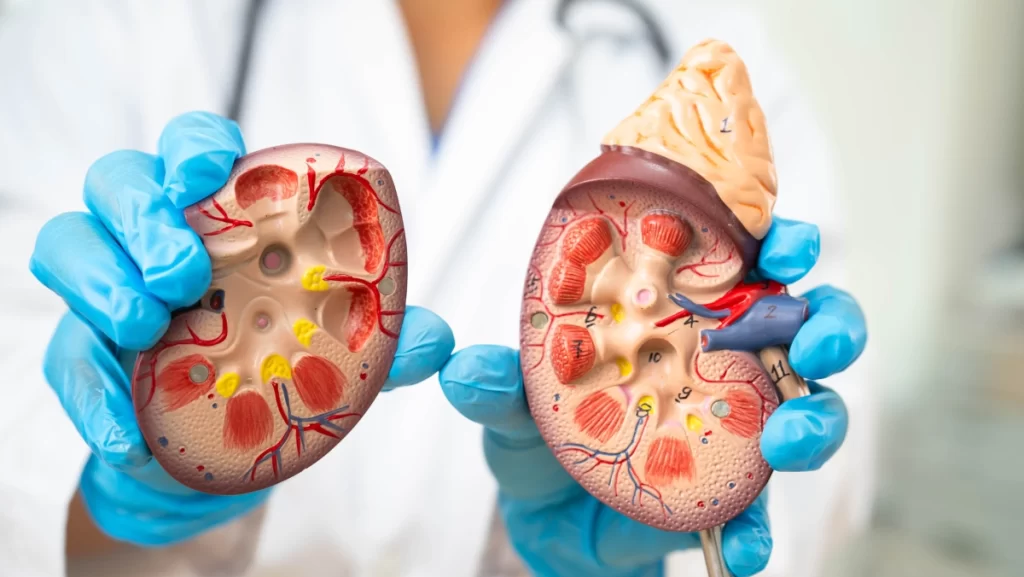Overview: Diabetic nephropathy
Diabetic nephropathy, or kidney disease caused by diabetes, is a serious condition that can worsen over time if not properly managed. The best diabetes hospital for kidney diseases in Ayapakkam offers expert care through specialized nephrology departments. With highly trained nephrologists and diabetes specialists working together, these hospitals provide the best care to ensure that the condition is managed effectively.
At these hospitals, you will find the latest treatments for kidney diseases associated with diabetes. These include kidney function monitoring, medications to control blood sugar and blood pressure, and dialysis when needed. Early intervention can slow the progression of kidney disease, and regular check-ups are essential.
Types of Kidney Diseases Linked to Diabetes
Several types of kidney diseases are linked to diabetes, which the best diabetes hospital for kidney diseases in Ayapakkam is fully equipped to handle:
- Diabetic Nephropathy: The most common type, caused by long-term high blood sugar levels damaging the kidneys.
- Acute Kidney Injury (AKI): A sudden decline in kidney function, sometimes triggered by infections or other complications.
- Chronic Kidney Disease (CKD): A gradual loss of kidney function over time, often due to poorly controlled diabetes.
At these hospitals, the treatment approach is tailored to the type and stage of kidney disease, providing targeted care for the best outcomes.
Signs and Symptoms
Recognizing the early signs of kidney disease is critical for managing diabetes-related complications. The following symptoms may indicate kidney problems, and the best diabetes hospital for kidney diseases in Ayapakkam will provide the necessary diagnostic tests:
- Fatigue or weakness
- Swelling in the hands, feet, or face
- Shortness of breath
- Changes in urination (foamy urine, or decreased urine output)
- High blood pressure
- Unexplained weight loss
Early intervention can prevent further kidney damage, so it’s crucial to consult a doctor if these symptoms appear.
Procedure
The treatment process for diabetes-related kidney diseases at a diabetes hospital for kidney diseases in Ayapakkam usually involves a multi-step approach:
- Diagnosis: The doctor will assess kidney function through blood tests, urine tests, and imaging.
- Monitoring: Regular monitoring of kidney function is important to catch any changes early.
- Medication: Depending on the stage of kidney disease, medications will be prescribed to control blood pressure, blood sugar, and reduce the load on the kidneys.
- Lifestyle Changes: Hospitals offer guidance on diet and exercise to manage both diabetes and kidney disease.
- Dialysis or Transplant: In advanced stages, dialysis or a kidney transplant may be necessary.
These hospitals work closely with each patient to provide personalized care plans that match the stage of kidney disease and the individual’s health condition.
Benefits & Risks
Choosing the best diabetes hospital for kidney diseases in Ayapakkam comes with numerous benefits, including:
- Expert Care: Access to specialized doctors in both diabetes and nephrology.
- Advanced Technology: The latest diagnostic and treatment equipment for kidney diseases.
- Comprehensive Treatment Plans: Tailored plans to control both diabetes and kidney disease.
However, as with any medical treatment, there are risks to consider:
- Medication Side Effects: Some medications may have side effects that need to be managed.
- Procedural Risks: If dialysis or surgery is required, there are risks related to these procedures.
Consulting with a specialist at a top hospital can help minimize these risks.
Recovery
Recovery from diabetes-related kidney diseases depends largely on the stage of the disease and how well it is managed. At a diabetes hospital for kidney diseases in Ayapakkam, patients are given personalized recovery plans, which might include:
- Diet and Lifestyle Changes: Eating a balanced diet low in salt and protein can reduce the strain on the kidneys.
- Medication Adherence: Ensuring that blood sugar and blood pressure are well-controlled is essential for kidney recovery.
- Regular Check-ups: Ongoing monitoring is key to preventing further kidney damage and managing diabetes effectively.
Patients are encouraged to stay in touch with their healthcare providers to ensure a smooth recovery process.


